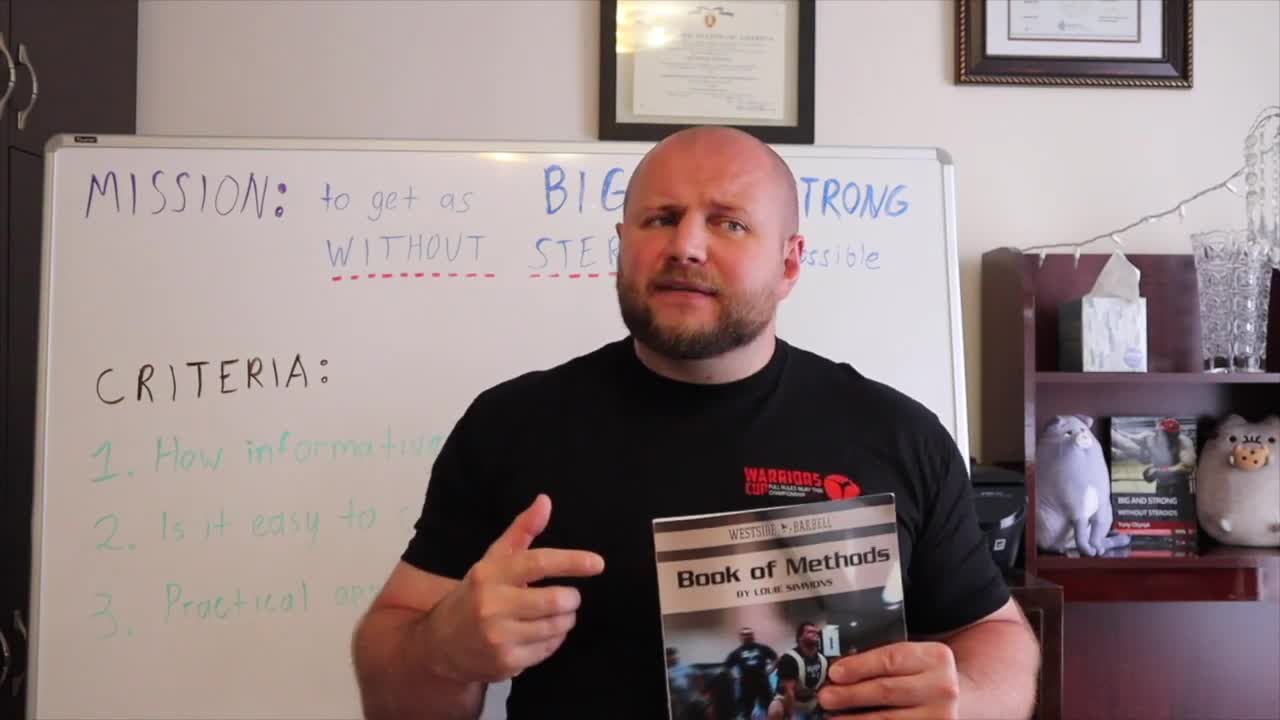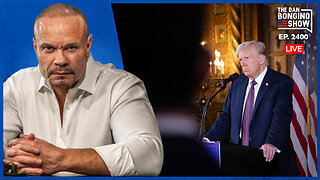Premium Only Content

BEST STRENGTH TRAINING BOOKS
Top 10 Books About Strength Training:
10. “The Weightlifting Encyclopedia: A Guide to World Class Performance” by Arthur J. Drechsler
9. “Supertraining” by Mel C. Siff and Yuri Verkhoshansky
8. “The Westside Barbell Book of Methods” by Louie Simmons
7. “Science and Practice of Strength Training” by Vladimir Zatsiorsky and William J. Kraemer
6. “Periodization: Theory and Methodology of Training” by Tudor O. Bompa and Carlo A. Buzzichelli
5. “Encyclopedia of Modern Bodybuilding” by Arnold Schwarzenegger
4. “Essentials of Strength Training and Conditioning” by G. Gregory Haff and N. Travis Tripplet
3. “Starting Strength Basic Barbell Training” by Mark Rippetoe
2. “Brawn: Bodybuilding for the Drug-Free and Genetically Typical” by Stuart McRobert
1. “Practical Programming for Strength Training” by Mark Rippetoe and Andy Baker
These are some other books that are worth mentioning but did not make the list:
A. “Olympic Weightlifting a Complete Guide for Athletes and Coaches” by Greg Everett. This book could potentially replace “Weightlifting Encyclopedia” on the above list. The book is full of excellent information and the author has a very reader-friendly writing style.
B. “Encyclopedia of Bodybuilding The complete A-Z Book on Muscle Training” by Robert Kennedy. Comprehensive source of information covering full spectrum of bodybuilding topics. But just like most books about bodybuilding it does provide enough scientific rationale for deep understanding of training methodology.
C. “Championship Bodybuilding Instruction Book for Bodybuilding” by Chris Aceto. Of all the books on this list I would consider this one to be the best explicit source of information on nutrition. As far as training, although there is plenty to learn, the actual training recommendations are probably not best fitted for a drug free athletes.
D. “Ultimate Bodybuilding” by Joe Weider. Any true fan of the sport will enjoy reading this book. But keep in mind that it was written many moons ago and its practical recommendations are very outdated.
E. “5/3/1 Forever” by Jim Wendler. The book contains a lot of very good practical applications. The reason why this book is not on my top ten list is that, unless you already know some basics of programming, you wouldn’t necessarily know the rationale behind any of these recommendations.
F. “HUGE A Complete Workout Regimen from Bodybuilding’s Superstars” by Flex magazine. This book is a good summary of modern mainstream bodybuilding philosophy. I wouldn’t necessarily say that it is geared specially towards drug free trainees. Still, it is quite interesting and informative.
G. “NASM Essentials of Sports Performance Training.” This book does excellent job explaining relevant anatomy and physiology for people without any medical field background. As far as practical recommendations, however, it is not really useful for helping one to get big and strong.
H. “Discipline Equals Freedom” by Jocko Willink. This is the only book on this list where the importance of discipline is being discussed to a sufficient extent. During times when rationalizing your laziness with training has become a norm - we need more books like this. As far as the recommended training regimen , unless you are a former military, you probably won’t enjoy doing so much calisthenics.
I. “ACSM’s Resources for the Personal Trainer.” It seems that this book focuses on everything besides its primary topic - what to do at the gym. I also believe that it is geared towards people with significant medical field background.
J. “Real Bodybuilding Muscle Truth From 25 Years in the Trenches” by Ron Harris. Articles by Ron Harris were the only reason I used to subscribe to “Muscle Development” magazine. Unfortunately he did not effectively convey all his knowledge about training in this book.
K. "Dinosaur Training Lost Secrets of Strength and Development" by Brooks D. Kubik. This book takes the idea of abbreviated training to an extreme. The author also argues against the use of periodization, with which it is difficult to agree.
-
 DVR
DVR
The Dan Bongino Show
3 hours agoWill Trump's Inauguration Be Safe? (Ep. 2400) - 01/14/2025
186K453 -
 LIVE
LIVE
Scammer Payback
31 minutes agoTrying to Make Scammers mad LIVE
467 watching -
 LIVE
LIVE
The Rubin Report
1 hour agoCo-Host Stunned as Adam Carolla Gives a Brutal Unhinged Message to Democrats
3,645 watching -
 1:17:07
1:17:07
Russell Brand
2 hours agoBREAK BREAD EP. 10 - DALLAS JENKINS
30.7K2 -
 LIVE
LIVE
Benny Johnson
3 hours ago🚨Pete Hegseth Confirmation LIVE NOW as THOUSANDS Of Vets Show Support at Capitol | Trump CHEERS On
22,442 watching -
 LIVE
LIVE
LFA TV
16 hours agoHEGSETH HEARING LIVE! | LIVE FROM AMERICA 1.14.25 11am
4,367 watching -
 1:33:12
1:33:12
Graham Allen
4 hours agoBiden is SABOTAGING Trump!! Says: “Our Economy Is Strong” + Elon Is Buying TikTok?!
63.3K25 -
 2:58:02
2:58:02
Matt Kohrs
13 hours agoPPI Inflation Report: Stocks Rip Higher (DJT, NVDA & TSLA) || The MK Show
40.1K2 -
 5:28
5:28
Dr. Nick Zyrowski
13 hours agoDopamine Detox - Get Your Energy, Sleep Quality & Focus Back
4.34K1 -

Wendy Bell Radio
6 hours agoAmerica Needs To Be Democrat-Proofed
63.5K68